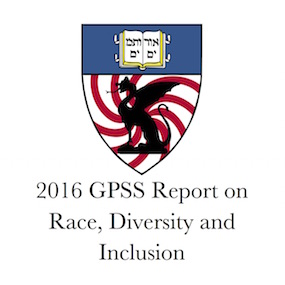 The Graduate and Professional Student Senate at Yale University released a new survey that reports on the experiences of graduate and professional students regarding bias, harassment, and discrimination on campus.
The Graduate and Professional Student Senate at Yale University released a new survey that reports on the experiences of graduate and professional students regarding bias, harassment, and discrimination on campus.
The study found that 33 percent of all students in Yale’s graduate and professional schools experienced bias, harassment or discrimination. More than 70 percent of all Black graduate or professional students reported incidents of bias, harassment or discrimination. More than half of all Black graduate or professional students at Yale said they experienced bias, harassment, or discrimination within their own department at Yale. This was more than triple the rate for White students.
Some 15 percent of all graduate or professional students at Yale said they disagreed with the statement, “I belong at Yale.” Some 30 percent of Black student said they felt like they did not belong at Yale.
More than one quarter of all Black graduate or professional students at Yale said that they believed that “my contributions are valued less than those of my colleagues.”
Some 62 percent of White students said they had a faculty mentor. Only 43 percent of Black students reported they had a faculty mentor.











The “beat” continues, unfortunately. From 9/76 to 6/80, I served as an Associate Director of Undergraduate Admissions. As an African-American, there was lots of bias in those years too. The secret to achievement in such an environment? Sharing information at all levels with each new graduate student entering. Show student “how” to get an advisor. Create a “Black Graduate Task Force”, which must be combined with Black students, White/Black Graduate Faculty and Administrators. They must meet monthly or even bi-monthly to discuss issues and discover ways to resolve issues. Not one student should be an “island” drifting lonely in a sea of confusion. Find a way. Make it work!
OMG!!! I just quit graduate school because of bullying and racism at Ohio University. These people say they want us but that’s not true. And I have an A average in my courses. I was attacked in the city while during my research, of course no one cares, school, police, etc… and the Department of education gives a 6 month time limit to report these incidents but I hung in there for 2 years trying to not give up as many people told me. People say, hang in there but when you are alone in hostile situations that is easier said than done. I’m lucky I was not killed or injured. Thanks America, for showing a black male that he is not wanted in jobs, schools, or society in this country. I get it now. So what graduate schools will I not find the same micro aggressions and foolishness in? Let me know!